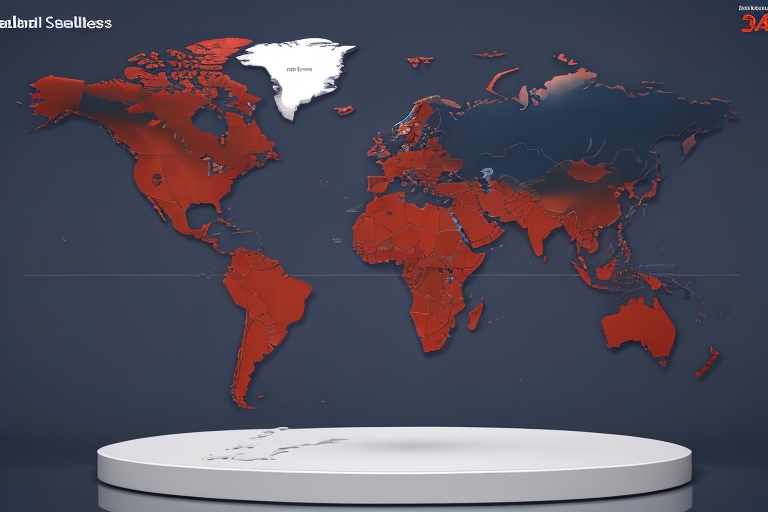The Potential of AI in Sales Forecasting

- August 9, 2023
- allix
- AI in Business
Artificial Intelligence, characterized by its remarkable ability to mimic human intelligence, is becoming a pivotal force in multiple business sectors, and sales forecasting is no exception. This innovative technology is steering a revolution in forecasting by enabling accurate predictions of future sales trends. AI achieves this through advanced algorithms and machine learning techniques that analyze existing sales data and learn from past patterns and trends.
AI-powered tools used for sales forecasting perform in-depth analysis of vast amounts of sales data faster than any human could. These tools not only forecast potential direct sales but also delve into more complex aspects of a business. They employ sophisticated predictive models to recognize intricate connections and patterns in diverse market sectors, all of which can sway the primary sales performance.
These tools can identify correlations and dependencies that might not be immediately apparent to human analysts. For instance, an AI tool equipped with advanced market trend analysis might deduce that sales of a particular product increase when the price of another complementary product drops. By identifying such trends, these tools could strategically direct businesses to draw actionable insights that can boost sales. What’s even more remarkable is that these AI tools continue to learn and improve their predictive capabilities with each analysis, owing to machine learning. Thus, it results in increasingly accurate sales forecasts over time allowing companies to make informed strategic decisions and stay ahead of the market curve.
In sum, AI in sales forecasting is drastically transforming how businesses scrupulously plan their sales strategy, and it is becoming an indispensable asset in the arsenal of tools used by business strategists and decision-makers.
The Power of Predictive Analytics
Predictive analytics has revolutionized the landscape of sales forecasting; it forms the crux of the forecasting process by leveraging both historical and current data to anticipate future events, trends, or patterns. Here, the emergence of AI has significantly enriched this domain and has taken sales forecasting to a new level.
Take Salesforce as an example, a leading company that harnesses the power of AI through its proprietary tool known as Einstein. This AI-powered tool is designed to improve sales forecasting by conducting in-depth analysis of large datasets. It identifies complex patterns and trends that human analysts might overlook and uses this information to predict likely future sales outcomes. Einstein is also built on a machine learning framework, allowing it to learn from past data as well as current market trends. With every data update, it continues to fine-tune its algorithms, steadily improving the accuracy of its predictions. This learning process enables it to adapt to changing market dynamics and continually refine its forecast accuracy, leading to more reliable, effective predictions.
Salesforce’s Einstein doesn’t just stop at prediction, it provides users with actionable insights, explaining what factors are driving the forecasts. This is immensely beneficial, as it helps companies understand the ‘why’ behind the predicted sales outcomes. They can then use these insights to optimize their sales strategies, target potential growth areas, and anticipate possible challenges before they arise. In addition, predictive analytics tools like Einstein can significantly reduce the time spent on manual data analysis, freeing up resources to be used elsewhere. It also allows real-time updates and forecasts, which are crucial for businesses in today’s fast-paced market.
Infusing AI into predictive analytics in sales forecasting, reveals clear paths to increased efficiency, offering detailed foresight and accuracy. Tools like Einstein are not just reliable, they are transformational, pivoting the company’s strategies for coherent and definitive decision-making, and ultimately leading to improved business performance.

Benefits of AI in Sales Forecasting
Utilizing AI in sales forecasting offers an abundance of benefits that improve strategic planning and operational efficiency for businesses. By extracting valuable trends from extensive datasets swiftly, AI-driven sales forecasts significantly enhance accuracy. This accuracy continues to evolve as machine learning refines these AI models based on new data, setting them apart from traditional forecasting methods that require extensive manual data analysis. AI not only analyzes enormous datasets quickly, but it also optimizes the use of important manpower resources.
These AI systems are designed to provide dynamic, real-time predictions rather than static, one-off forecasts. This enables businesses to respond promptly to market changes, seizing opportunities and minimizing risks. On top of that, AI tools are capable of generating personalized forecasts that align with a company’s specific circumstances and objectives. These forecasts consider company-specific factors such as the business model, market segment, product range, and seasonal sales fluctuations.
The improved revenue prediction facilitated by AI allows companies to plan their finances and investments more strategically. This improvement in accuracy plays a vital role in enhancing inventory management. By predicting future sales accurately, businesses can optimize their stock levels and minimize inventory-related costs. AI’s predictive models assist in identifying potential threats and risks, providing businesses with an advantage to proactively react to downtrends in sales or shifts in market demands.
The fusion of heightened accuracy, real-time forecasting, and detailed market insights empowers more informed strategic planning. Due to AI in sales forecasting, businesses can spot growth opportunities, evaluate the effectiveness of marketing strategies, decide on product diversification adjustments or discontinuation, and manage supply chains more effectively. AI’s revolutionizing impact on sales forecasting is instrumental in creating more profitable and efficient business operations, cementing its position as an indispensable tool in this field.
Overcoming Challenges
While integrating AI in sales forecasting presents significant opportunities for increasing efficacy and efficiency, it’s important to acknowledge the associated challenges. These may encompass resistance from personnel due to apprehension of new technology, the initial high costs of adopting AI tools, and the necessity of providing and maintaining high-quality data for accurate forecasts. Understanding and addressing these challenges can be key to the successful implementation of AI in sales forecasting. For one, institutional resistance can be mitigated through comprehensive training programs that educate employees about AI tools – including understanding their functionality, benefits, and the value they add to the organization. This will help inculcate a culture of acceptance and readiness for AI-driven sales forecasting.
Financial barriers, like high upfront costs, can be daunting initially; however, these can be rationalized when looking at the long-term benefits of AI integration. These can include improved strategic planning due to more accurate sales forecasts, better risk management through predictive analytics, and overall cost savings from automation, reducing manual errors and freeing up human resources for strategic tasks. Moreover, the challenge of ensuring high-quality data for AI use can be covered by implementing robust data management practices. This includes data clean-up, regular audits for data quality, and using reliable sources of data collection. Ensuring data quality is essential as it directly impacts the accuracy of AI-driven sales forecasting.
It’s important to note that the role of AI in sales forecasting is not a static one; rather, it’s an evolving landscape as AI technology continues to advance, steadily enhancing forecasting accuracy and providing more specific and actionable insights. As businesses continue to generate and deal with larger volumes of data, the capacity of AI to effectively harness this Big Data will prove increasingly vital. This will inspire new strategies and methodologies in sales forecasting and overall business planning.
Categories
- AI Education (39)
- AI in Business (65)
- AI Projects (87)
- Research (107)
- Uncategorized (5)
Other posts
- Medical Treatment in Brazil: Advanced Healthcare, Skilled Specialists, and Patient-Focused Care
- Dental Treatment in China: Modern Technology, Skilled Dentists, and Comprehensive Care for International Patients
- Plastic Surgery in China: Advanced Aesthetic Medicine Supported by Precision, Innovation, and Skilled Specialists
- Ophthalmology in China: Advanced Eye Care Guided by Innovation, Expertise, and Patient-Focused Treatment
- Finding Care, Calm, and Confidence: Why Patients Are Looking Toward Beroun in the Czech Republic
- Choosing Health, Energy, and a New Future: Exploring Gastric Bypass in Diyarbakır, Turkey
- When Facial Hair Tells Your Story: Considering a Beard Transplant in Phuket, Thailand
- When Prevention Becomes Power: Understanding Liver Cirrhosis Risk and Modern Screening Approaches in Spain
- When the Abdomen Signals Something Serious: Understanding Abdominal Aortic Aneurysm and Getting Expert Evaluation in Islamabad
- When Back Pain Becomes More Than “Just Pain”: Understanding the Need for Microdiscectomy
Newsletter
Get regular updates on data science, artificial intelligence, machine



